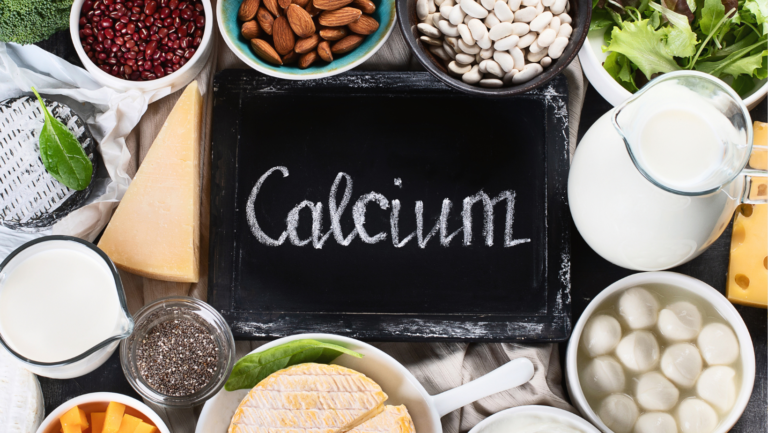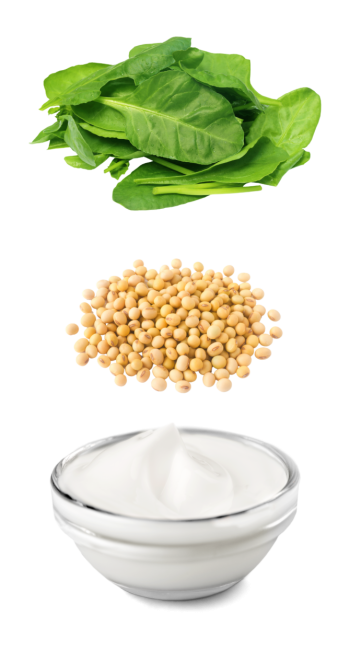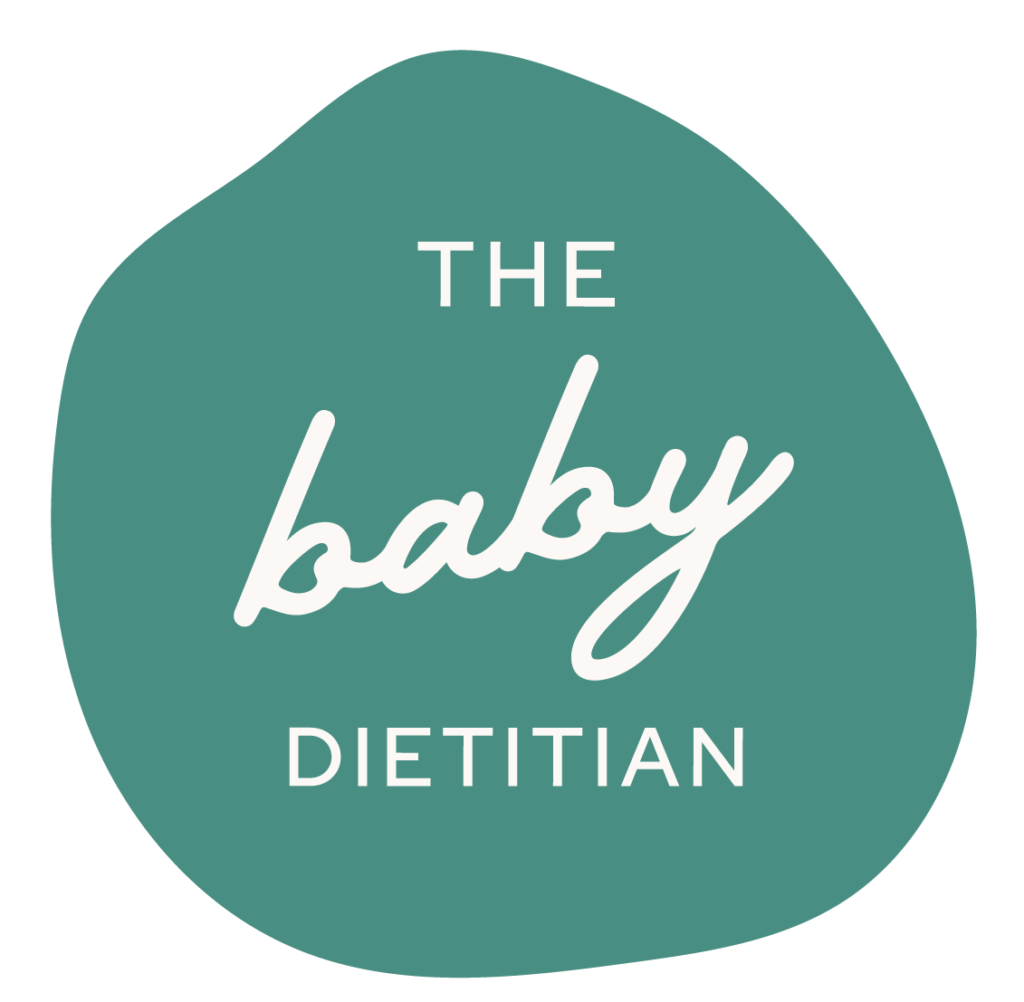How to Meet Calcium Needs for Toddlers (1-3 years old)

Some of the links below are affiliate links. At no additional cost to you, I will earn a commission if you click through and make a purchase.
Are you unsure how to ensure adequate calcium intake for your toddler?
We only get one chance to build strong bones – and this happens when we are children and teens! Children who get enough calcium start their adult lives with the strongest bones possible. This protects them against bone loss later in life!
Toddlers between the age of 1-3 years old also have very high calcium needs due to their rapid bone growth during this phase of life.
Here’s the American Academy of Pediatrics’ statement on calcium:
“Most older children and adolescents in the United States currently do not achieve the recommended intake of calcium. Maintaining adequate calcium intake during childhood and adolescence is necessary for the development of peak bone mass, which may be important in reducing the risk of fractures and osteoporosis later in life. A well-rounded diet including low-fat dairy products, fruits, and vegetables and appropriate physical activity are important for achieving good bone health. Establishing these practices in childhood is important so that they will be followed throughout the lifespan.”
Cow’s milk is commonly offered to children and is a great source of calcium. However, there’s a lot of other food sources of calcium that not a lot of people talk about!
In fact, for our toddlers who may have a dairy allergy or just not choosing to drink cow’s milk, there are many options to help them meet their calcium needs.
Work with your pediatrician and pediatric dietitian to ensure that your child’s nutrient needs are being met, especially if your child has a dairy allergy or if you are choosing to not provide dairy milk or fortified plant based milk!
Calcium Recommendations:
| AGE | AMOUNT OF CALCIUM PER DAY |
|---|---|
| 0-6 months | 200mg |
| 7-12 months | 260mg |
| 1-3 years | 700mg |
| 4-8 years | 1000mg |
700mg calcium for toddlers may sound like a lot to you, but it can be quite easy to meet calcium needs through breast milk or cow’s milk:
8 ounces of breast milk = 79mg calcium
8 ounces of cow’s milk = 290mg calcium
16 ounces of cow’s milk = 580mg calcium
24 ounces of cow’s milk = 870mg calcium
If you’re concerned about getting enough calcium for toddlers that don’t drink milk, don’t worry, I’ll get to that down below!

Cow’s Milk
Fortified milks and dairy products contain a huge punch of calcium and vitamin D in a small portion size versus other food sources that do not have quite as much calcium per portion size.
The dairy food group provides a convenient source of a lot of nutrients, including calcium, protein, potassium, and vitamin D, which are important for building bone and brain development. Milk is the number one source of energy, calcium, vitamin A, vitamin D, and zinc for infants and young children, making it a critical component of a healthy diet.
(But if your toddler won’t drink cow’s milk, has an allergy or intolerance, or your family follows a vegan lifestyle, all these nutrients can still be obtained through a well-planned diet!)
The American Academy of Pediatrics (AAP) recommends whole cow’s milk until the age of 2 before considering plant-based milk. Cow’s milk elimination from the diet during infancy and childhood should be recommended only after confirming a cow’s milk protein allergy diagnosis.
Note: If you are continuing to breastfeed past 12 months, there is no need to introduce another milk option.
Breast Milk
Yep, you don’t have to introduce cow’s milk if you are still breastfeeding past a year. Breast milk is still the best milk choice for your little one paired with nutrient dense complementary foods.
The American Academy of Physicians states: “Breast milk or whole cow’s milk should be offered as the primary beverage between one and two years of age.”
Most experts agree that, as long as a breastfeeding toddler is eating a variety of grains, vegetables, fruits, and foods or supplements that provide adequate iron, calcium, and vitamin D, nutrition will be adequate and appropriate growth and development will be ensured.
Breastfeeding can be continued for up to 2 years of age and beyond, as long as the mother and child want to continue. Older breastfed infants and children not consuming foods or drinks that are dairy based or milk alternatives may not be getting enough calcium and vitamin D.
Note: Nutrient adequacy will be dependent on the frequency and volume of breast milk consumed. Individual guidance from a dietitian may be warranted.
Milk Alternatives
Milk alternatives or plant-based milk can help with your toddler’s calcium intake. However, not all milk alternatives are created equal. The AAP advises parents to read labels when choosing cow’s milk alternatives for their families, since the protein, micronutrient, and calorie content varies among different brands.
For example, one brand of almond milk can have a different nutrition composition compared to another brand of almond milk. When it comes to choosing a milk alternative, you’re going to have to figure out which alternative works for your child to supplement their diet.
AAP states that among alternative milks, only soy milk contains comparable amounts of nutrients. The vitamin content of other milk is not reported on the labels meaning they are either not present or present in very minute quantities. A plant-milk substitution along with additional supplementation should be appropriate to minimize the risk of nutritional inadequacy and poor growth.
Note:
For 0 to 12-month-olds, plant-based milk, or non-dairy beverages, should not be used as a substitute for breast milk or infant formula. The use of alternative beverages as a major component of the diet during this period has been associated with malnutrition.
For children 1 to 5 years of age, plant-based milk may be useful for those with allergies or intolerances to cow’s milk. For those children, the choice to consume plant milk should be undertaken in consultation with a health care provider, such as a pediatrician and/or registered dietitian nutritionist, so that the intake of nutrients that are commonly obtained from dairy milk can be considered in dietary planning.
Calcium Rich Foods for Toddlers
As long as your child takes a wide variety in their diet and has a good source of calcium, just choose what you offer your child wisely!
Some calcium rich foods for toddlers include:
- Yogurt
- Cheese
- Dark leafy greens like spinach
- Soybeans
- Fortified cereals
- Fortified juice
It is important that if you are opting out of providing cow’s milk or calcium fortified plant based milk that you are making sure your toddler is getting plenty of calcium from other food sources. For those who are still breastfeeding, know that your child is getting good nutrition from your milk suited to their growing needs.
If you are concerned about your toddler’s diet or they don’t eat a wide variety, consult your pediatrician or pediatric dietitian for advice and help.

Examples: What does 700mg calcium look like in a day?
Option 1: No Milk or Milk Alternatives
|
Breakfast |
Chia Seed Pudding (using coconut milk) |
160mg calcium |
|
Lunch |
Tofu and Black Bean Scramble |
225mg calcium |
|
Dinner |
Mashed Sardine paired with Broccoli + Mandarin Orange |
135mg calcium |
|
Snack |
½ cup cheerios |
45mg calcium |
|
Snack |
½ cup fortified plant-based yogurt |
140mg calcium |
|
Total: 705mg calcium |
Option 2: Breastfeeding and No Other Milk
|
Breakfast |
Instant Oatmeal (add chia seeds and figs) |
165mg calcium |
|
Breakfast |
Whole Grain Bread + Almond Butter |
105mg calcium |
|
Dinner |
White bean and kale soup + blackberries |
35mg calcium |
|
Snack |
Mandarin Orange + ½ egg |
40mg calcium |
|
Snack |
½ cup fortified plant-based yogurt |
140mg calcium |
|
Liquid |
24 ounces breast milk |
240mg calcium |
|
Total: 725mg calcium |
Option 3: Cow’s Milk
|
Breakfast |
1 waffle + peanut butter |
135mg calcium |
|
Lunch |
Tuna Salad + Kiwi |
35mg calcium |
|
Dinner |
Chicken + Carrots + Blueberries |
30mg calcium |
|
Snack |
Applesauce + 8 ounce Cow’s Milk |
260mg calcium |
|
Snack |
Avocado + 8 ounce Cow’s Milk |
265mg calcium |
|
Total: 725mg calcium |
Option 4: Dairy Products but no Cow’s Milk
|
Breakfast |
Almond Butter Toast (using calcium fortified bread) + Fruit |
171mg calcium |
|
Lunch |
Black Bean Burger + Pineapple |
60mg calcium |
|
Dinner |
Red Lentil Pasta + Tomato Sauce + Mozzarella + Mandarin Orange |
90mg calcium |
|
Snack |
Sliced Cheese and Strawberries |
155mg calcium |
|
Snack |
Yogurt Pouch |
200mg calcium |
|
Total: 675mg calcium |
Let’s Talk Milk Transition Class
Need more information on this topic? Check out my pre-recorded live on this topic here! Need more individualized assistance, let’s set up a 1:1 consult to determine if your toddler is meeting their nutritional needs or not!

Cinthia Scott is a Registered Dietitian (RD) and International Board Certified Lactation Consultant (IBCLC) , with over 7 years experience in the field of dietetics. Cinthia focuses on ensuring optimal nutrition in the first 1000 days of life to ensure optimal growth and development as well as set the stage for long-term health. Cindy is an author, starting solids expert, and advocate for caregivers receiving evidence based education and support surrounding breastfeeding and starting solids.
Cinthia is co-author of the 101beforeone Starting Solids Book, “101beforeone -baby-led feeding cookbook,” and is the founder and owner of The Baby Dietitian LLC which is her private practice built to provide virtual 1:1 services for caregivers surrounding infant nutrition, toddler nutrition, and breastfeeding support. Cinthia is also the creator of the Starting Solids 101 Program which provides caregivers 1:1 support from a Pediatric Dietitian on how to provide optimal nutrition from the start and create healthy eating habits that will last their whole lifetime. To work with Cinthia, you can access her services here.
Cinthia provides tons of free information for parents on her social media accounts as well.
- Instagram: @The.Baby.Dietitian
- Tiktok: @The.Baby.Dietitian

